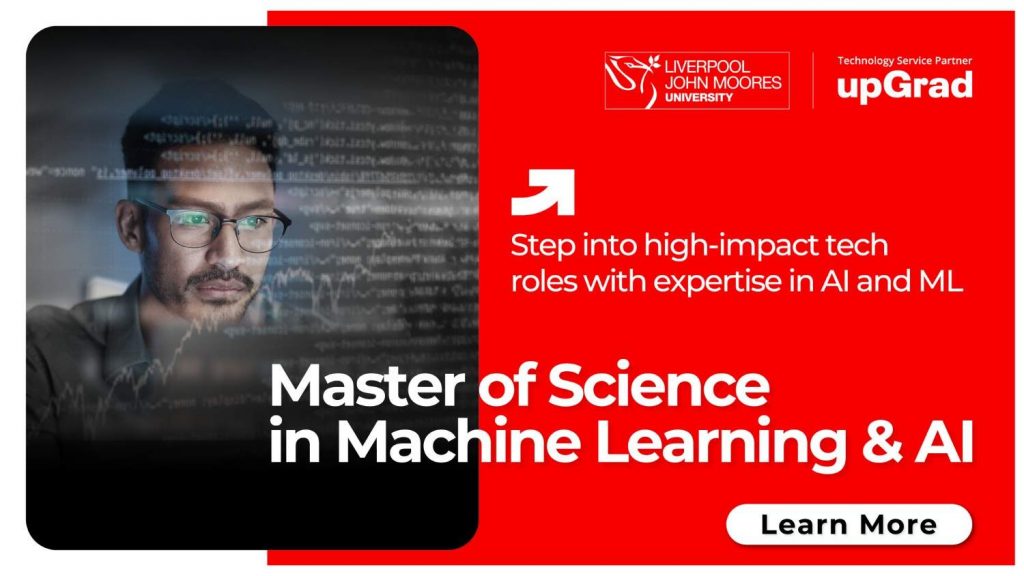Choosing the best deep learning framework matters a lot in 2026, particularly if you’re looking to upskill in areas like machine learning and AI. It assumes importance in a scenario where generative AI is expected to boost business profits by $4.4 trillion annually, although only 16% of US executives feel they have an AI-ready workforce. Demand for ML and AI specialists will also rise by 40% by 2027. To put it into context, the US has about 190,000 data scientists and just 30,000 AI specialists.
The choice of framework directly impacts the efficiency of model development, deployment, and scalability. If you’ve heard of the TensorFlow vs PyTorch debate already, then you must be looking to choose the proper framework for your project. Here’s helping you decide.
What Is TensorFlow?
TensorFlow is a versatile framework for machine learning and deep learning. It’s beneficial when you want to transition from experimentation to production, as it handles large datasets and distributed computing smoothly. Companies rely on it for scalable machine learning and mobile-friendly applications.
Here’s a quick look at who uses it, its special features, and the ecosystem supporting it:
- Who Uses TensorFlow?
- Data scientists building production-ready AI models.
- Developers working on enterprise AI solutions.
- Mobile developers using TensorFlow Lite for apps.
- Special Features
- Static computational graph for efficiency.
- TensorBoard for visualization and monitoring.
- Optimized for distributed computing.
- Ecosystem
- TensorFlow Hub, TensorFlow Lite, and TensorFlow Extended (TFX) provide tools for models, deployment, and pipelines.
- Large community support ensures tutorials, updates, and resources.
What Is PyTorch?
PyTorch is popular for research and experimentation. Unlike static graph frameworks, PyTorch enables you to modify the model on the fly, which is ideal for experimentation. Its Pythonic interface also makes it intuitive, allowing faster prototyping and debugging.
Here’s who uses it, its standout features, and the ecosystem that makes it developer-friendly:
- Who Uses PyTorch?
- Researchers are testing new AI models.
- Developers building custom neural networks.
- Teams rapidly prototyping and iterating models.
- Special Features
- Dynamic computational graphs for flexible coding.
- Pythonic syntax for intuitive workflows.
- Efficient GPU utilization.
- Ecosystem
- TorchVision, TorchText, and TorchAudio support vision, NLP, and audio projects.
- Active community sharing tutorials, pre-trained models, and research papers.
PyTorch vs TensorFlow: Comparison Table
Here is a look at the difference between PyTorch and TensorFlow below:
| Attribute | TensorFlow | PyTorch |
| Architecture | Python, C++, CUDA | Python, C++, CUDA (based on Torch-Lua) |
| Performance | Optimized and scalable | Quick performance |
| Ease of Use | More intuitive | Steeper learning curve |
| Ecosystem | Bigger, more established community | Fast-growing community |
| Industry vs Research Preference | Large-scale production | Research, rapid prototyping |
| Resource Usage | Uses less memory | May use more memory |

Key Differences Between TensorFlow and PyTorch
1. Architecture
TensorFlow is written in C++, Python, and CUDA, while it has TensorBoard for visualizing training procedures. It also uses a static computational graph. PyTorch, on the other hand, uses a dynamic computational graph and depends on third-party tools for visualization purposes. It is also written in the same languages based on Torch (written in Lua).
2. Performance
It is one segment where the PyTorch vs TensorFlow battle comes alive. TensorFlow offers robust support for embedded and mobile devices via TensorFlow Lite. On the other hand, PyTorch is yet to catch up in terms of deployment or maturity in this department. However, it does have in-built learning rate schedulers, while this is a hyper parameter (needs manual adjustments) in TensorFlow.
TensorFlow is more suitable for large-scale production deployment with excellent optimization and scalability. PyTorch, on the other hand, offers quick performance and fast research and development, although the dynamic graphs may consume more memory.
3. Ease of Use
PyTorch is more intuitive and Pythonic. It is easier to learn and use, with its hassle-free API and consistent syntax. The learning curve is steeper with TensorFlow, with its complex API and static graph system.
4. Ecosystem
TensorFlow has a larger and more established ecosystem, offering vast production-ready deployment choices and other valuable resources. However, PyTorch is catching up quickly in areas such as academic research.
5. Industry vs. Research Preferences
TensorFlow finds more favor in large-scale and production-ready environments. PyTorch is more suitable for quick prototyping, research, and experimentation.
6. Resource Usage
TensorFlow may be more efficient in terms of memory usage, particularly for large models. PyTorch may consume more memory with its dynamic graphs.
Also Read: Machine Learning Interview Questions & Answers for US
Who Should Choose TensorFlow
Here are some suitable user profiles for TensorFlow:
- Scientists and Machine-Learning Engineers who create and refine models.
- Those working with large datasets or other complex architectures.
- Software developers looking to integrate machine-learning models into applications or those creating customized ML pipelines.
- Enterprise developers building production-ready and scalable AI solutions for large companies.
- Mobile and Edge developers.
Also Read: Machine Learning with Python for Beginners in the US
Who Should Choose PyTorch?
These are a few user profiles that may be ideal for PyTorch:
- Researchers and students carrying out academic initiatives or innovative AI-based work.
- Developers who wish to experiment with dynamic computation graphs and easy Python integration.
- Those building flexible neural networks and looking for prototyping solutions.
- People working on distributed training projects.
Why is Choosing the Right Framework So Important?
Selecting the right deep learning framework isn’t just about popularity—it can shape how efficiently your project progresses and how easily it scales. The choice impacts everything from development speed to deployment and long-term maintenance. Here’s why it’s important:
- Productivity: The right framework enables you to build and iterate on models more efficiently, saving time during experimentation.
- Efficiency: Optimized frameworks reduce training time and increase resource utilization efficiency.
- Project Fit: TensorFlow suits large-scale production environments, while PyTorch is ideal for research and prototyping.
- Long-term Success: Choosing the right tool ensures smoother workflows, easier scaling, and fewer issues down the line.
Master TensorFlow or PyTorch with Structured Learning through upGrad
upGrad USA offers structured and dynamic learning programs for aspiring individuals looking to upskill in areas such as machine learning and AI. Courses cover both foundational and industry-relevant concepts, along with enabling hands-on and practical learning. You can also expect seamless guidance and support with mentorship from industry experts, and access to bootcamps and resources for mastering PyTorch or TensorFlow.
Some popular Machine Learning AI programs available on upGrad:
- Post Graduate Certificate in Generative AI (E-Learning)
- Master of Science in Machine Learning & AI
- Executive Certificate in Generative AI for Leaders (E-Learning)
- Executive Diploma in Machine Learning and AI with IIIT-B
FAQs: PyTorch vs TensorFlow
It depends on your goals. PyTorch is more beginner-friendly and flexible for research, while TensorFlow offers better scalability for production.
Yes, the Python-like syntax and dynamic graphs make it easier to understand and experiment with AI models.
TensorFlow’s static graphs and deployment tools make it ideal for enterprise-scale applications.
Yes. Some teams prototype in PyTorch for flexibility and then deploy in TensorFlow to leverage its production-ready tools.
PyTorch utilizes a dynamic computation graph that is constructed flexibly as the code executes. On the other hand, TensorFlow utilizes a static computation graph that is defined prior to execution.
Some of the industries that prefer TensorFlow include:
1. Healthcare
2. Technology
3. Finance
Some sectors that favor PyTorch include:
1. Robotics and autonomous driving
2. Academic research and prototyping
They have seamless integrations with leading cloud platforms, including popular machine-learning frameworks. Both PyTorch and TensorFlow enable highly efficient and scalable development workflows.
It depends on your specific needs and career goals. If you’re looking at experimentation, research, and prototyping, then PyTorch is a better choice. Yet, in case you’re working on large-scale projects with multi-platform deployment, go for TensorFlow.
Data scientists use both these frameworks for different purposes. PyTorch is more suitable for experimentation and research, while TensorFlow is ideal for large-scale production deployment.
PyTorch is generally better for research and experimentation due to its simplicity and flexibility, while TensorFlow is stronger for production and large-scale deployment. The “better” choice depends on whether you prioritize developing models quickly (PyTorch) or deploying them at scale (TensorFlow).




















